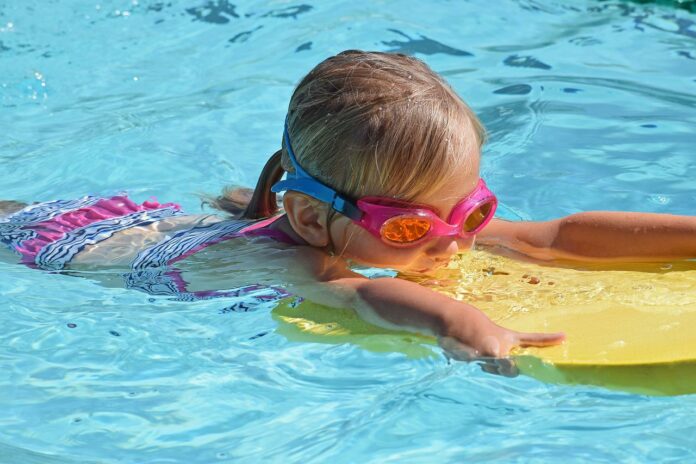End of Summer Ocean & Water Safety Tips for Parents
For many people, the idea of summer can conjure pleasant thoughts of beaches, vacations, and breaks from school or work. For parents of children however, the idea of summer can often be tempered by images of stressful outings, trying to keep track of your kids in crowds, the logistical operations that trips to the beach can become, and worrying about safety and the potential hazards that come with adventuring.
Thankfully, teaching your kids the fundamentals and importance of water safety can make trips to the water park or the beach much less stressful and help both you and your kids better enjoy your summer months.
Different Settings for Water Safety
When approaching water safety with your children, it’s important to note that safety protocol looks very different depending on the aquatic setting you and your kids will find themselves in. For instance, beach and ocean water safety can include vastly different considerations from water safety in pool, river, or boating settings.
Depending on where you live, your swimming activities will likely center within some of these environments and not others. It’s important to focus your children’s safety awareness first on the water environments they’ll most likely or most often find themselves in.
Hazards Your Children Should Understand
After identifying the types of water safety that will be the most important to your children, your next consideration should be identifying the information or topics that will be most important in the environment(s) your children will most often find themselves.
While some elements of water safety translate across any environment, some elements are environment-specific and should be researched or understood before teaching your kids.
In keeping with our previous example, safety training for ocean swimming will naturally need to include information about tides and ocean wildlife. These elements aren’t necessary, or would look different, for kids that will be spending their time in rivers or pools.
Though these will each obviously need to be tailored to your environment(s), here are some of the most important building blocks to consider as you think about how to teach your children about water safety:
Respecting Lifeguards and Other Authorities/Personnel
Whether at the beach, on boats, or in a community pool, your children need to know the importance of heeding cautions and instructions from qualified individuals. They will also need to be able to recognize an authority figure like a lifeguard or instructor in case of an emergency or problem.
Equipment and Physical Safety
Teach your kids how to properly use floaties, life jackets, hats or other sun cover, and sunscreen. Teach the importance of staying hydrated. No matter where you will be engaging with water activities, there will be important pieces of equipment to utilize, and your kids should understand their purposes and use.
Wildlife and Natural Phenomena
Whether in oceans, lakes, or rivers, wildlife can often be a part of the swimming or water activity experience. It’s important to teach your kids how to respect and protect elements of the natural world. This includes not touching or picking up live animals, the reasons for not littering or destroying habitats, and understanding the weather and its importance.
The Basics of Swimming, Treading Water, and Strokes
Teach your children how it feels to float on their backs. Help them practice staying upright while only kicking or only using their arms. Teach them to jump in or go underwater without holding their nose. As they grow and show interest, teach them the basic swimming strokes.
Tips for Teaching
As you decide on how you want to tackle water safety with your child or children, keep in mind a couple things that can help you make it a helpful and enjoyable time for everyone:
Make Your Lessons Age-appropriate
If you are working with toddlers, don’t expect that they’ll have the capacity or attention span to become swimming prodigies quite yet. Don’t be afraid to start small, short, and quick. As your kids age, it will be possible and even fun to make these lessons a bit more advanced. Until then, be patient with what your kids can handle and don’t worry about teaching them in short spurts at a time.
Ask for Help
Water safety is an important topic. If you feel unsure or ill-equipped to help your children understand it adequately, don’t be afraid to enlist others. This could look like asking another parent who is more familiar with the subject to do a mini-clinic on a joint outing day or signing your kids up for introductory swim lessons or professionally facilitated teaching. If your child has a fear of water, you may need to seek help from a family or child psychologist.
Teach Your Kids to Be Teachers
As you impart water safety to your children, help them know that they can share that advice and wisdom with their friends and peers who haven’t received that kind of instruction. Help them teach (with your supervision) their younger siblings. This can help your children respect and appreciate the importance of water safety principles and keep other kids safe as well.
Keep It Simple: One Step at a Time
Finally, this is a marathon, not a sprint. Don’t feel like you have to make your kids experts in one afternoon. As with many subjects, teaching your kids water safety is something that should continue over time and be built into your regular water outings and interactions.
It can be easy to get overwhelmed with how to go about helping your children understand water safety concepts. But with just a little bit of thought, planning, and support when needed, you can help equip your children to enjoy water activities and environments safely for the rest of their lives.


